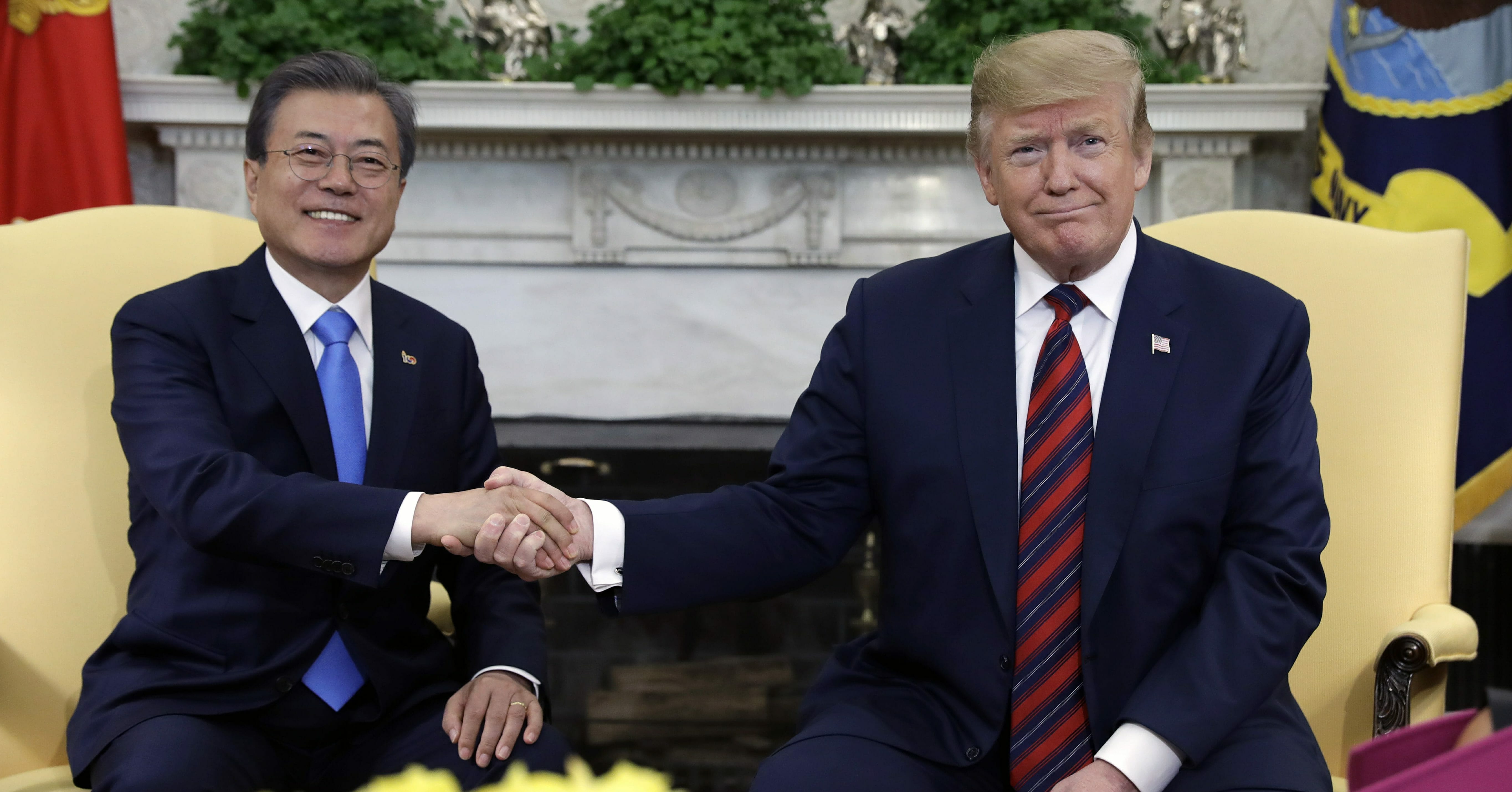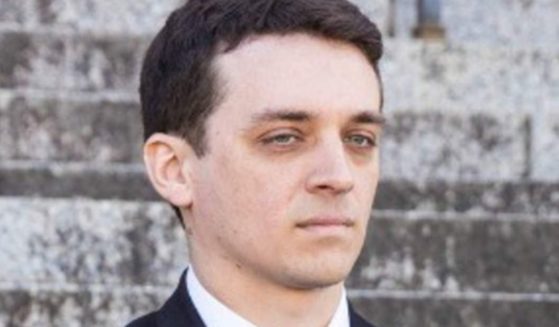
Trump Won't Budge on North Korea Sanctions, but 3rd Summit Still Possible
President Donald Trump says the U.S. wants to maintain economic sanctions to pressure North Korea to give up nuclear weapons but isn’t ruling out a third summit with Kim Jong Un or taking steps to ease food or other shortages in the repressive nation.
“We want sanctions to remain in place,” Trump said Thursday at the White House during a meeting with South Korea President Moon Jae-in. “I think that sanctions right now are at a level that’s a fair level.”
Moon, for his part, has called for an easing of sanctions, including those holding back joint economic projects between North and South Korea. Trump said he would favor easing those sanctions at the right time but added: “This isn’t the right time.”
He said he was open to discussing smaller steps, such as helping to ease North Korea’s humanitarian problems but, in general, the U.S. wants sanctions to remain.
“There are various smaller deals that maybe could happen,” Trump said.
“You could work out step-by-step pieces, but at this moment, we’re talking about the big deal. The big deal is we have to get rid of the nuclear weapons.”
Negotiations on Pyongyang’s nuclear program appear to be stalled, and there is uncertainty over whether Kim is considering backing out of talks or restarting nuclear and missile tests. The Korean Central News Agency on Thursday said that at a party meeting on Wednesday, Kim stressed “self-reliance” in his country to “deal a telling blow to the hostile forces” that “go with bloodshot eyes miscalculating that sanctions can bring” North Korea “to its knees.”
Moon said it’s important to maintain the “momentum of dialogue” and express a positive outlook to the international community that a “third U.S.-North Korea summit” will be held.
“I’d like to express my high regard for how you have continued to express your trust towards Chairman Kim,” Moon said. “And also, you have made sure that North Korea does not deviate from the dialogue track.”
The United States and North Korea have accused each other of causing the Hanoi summit’s breakdown. But they haven’t formally abandoned diplomacy. Moon, a liberal who facilitated U.S.-North Korea diplomacy last year, told Trump that he would push for an inter-Korean summit with Kim, according to Moon’s office.
Moon met Kim three times last year.
At the White House, Moon did not publicly address the issue of sanctions. But several North Korea watchers, including Sue Mi Terry, a North Korean expert at the Center for Strategic and International Studies and a former Asia analyst at the CIA, said Moon is trying to persuade Trump to agree to ease sanctions to keep the talks alive.
While Trump didn’t rule out a third summit with Kim following his earlier two meetings with him in Singapore and Hanoi, Victor Cha, a North Korea expert from the Bush administration, wasn’t as hopeful.
With Trump already campaigning for re-election, Cha said, “It’s hard for me to think Trump will risk a third summit.”
Trump walked away from making a deal with Kim at their meeting in late February. Trump said Kim was asking for sanctions relief without wanting to fully dismantle all his nuclear weapons programs. There is ongoing debate over whether harsh sanctions can pressure Kim to denuclearize or will keep him away from the negotiating table.
Secretary of State Mike Pompeo told members of the Senate Foreign Relations Committee on Wednesday that the administration was fully engaged in efforts to negotiate a resolution to the nuclear standoff.
“We are going to keep at it,” he said. But there have been no public accounts of any progress since the Hanoi summit.
Sen. Jeff Merkley, D-Ore., assessed the denuclearization talks as “stuck on first base.” Merkley said the North Koreans had continued developing their missile program and were finding ways to circumvent economic sanctions strangling its economy. He cited a U.N. panel of experts that warned on March 5 that there has been a “massive increase in illegal ship-to-ship transfers of petroleum products and coal” rendering the latest U.N. sanctions “ineffective.”
A senior administration official said Thursday that the U.S. and the international community had “clearly defined the scope” of North Korea’s weapons of mass destruction and ballistic missile programs, have a shared understanding of what final, fully verified denuclearization entails and what meaningful progress toward that goal looks like. The official, who spoke on condition of anonymity to discuss the sensitive negotiations, said the North Korean position, so far, has fallen short of that understanding.
North Korea’s Deputy Foreign Minister Choe Son Hui said last month that Kim would soon make clear his post-Hanoi position. She said her country might pull out of the nuclear negotiations with the United States, citing a lack of corresponding steps to some disarmament measures North Korea took last year. She also hinted that Kim was considering whether to continue the talks and his moratorium on nuclear and missile tests.
The Western Journal has reviewed this Associated Press story and may have altered it prior to publication to ensure that it meets our editorial standards.
Truth and Accuracy
We are committed to truth and accuracy in all of our journalism. Read our editorial standards.
Advertise with The Western Journal and reach millions of highly engaged readers, while supporting our work. Advertise Today.












